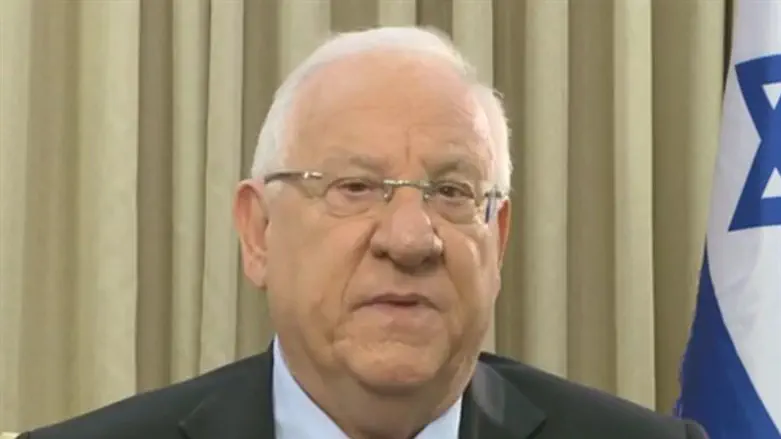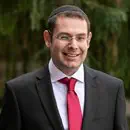
Israeli President Reuven Rivlin announced Thursday that he is considering a special move to grant pardons to prisoners in Israeli jails.ahead of Israel's 70th anniversary next year, Ynet reported.
Rivlin did not specify which prisoners would be included in the pardon, and only noted: "I am examining the possibility of advancing the move in coordination with the Ministry of Justice and the Israel Prison Service."
The president made the remarks during a visit to the Tzalmon and Hermon prisons Thursday. He was accompanied by Public Security Minister Gilad Erdan, IPS Commissioner Major Ofra Klinger, and senior prison service officials.
At the Hermon Prison, a rehabilitation and treatment facility, Rivlin saw Beit Tikvah - a rehabilitation wing for the treatment of prisoners who were not convicted for drug related offenses, but for domestic violence. The department has therapeutic education centers, therapeutic groups, and employment centers aimed at rehabilitating the prisoners and enabling them to embark on a new path.
"We are very careful in granting pardons to prisoners [convicted of] domestic violence, even if the wife requests it," Rivlin told the inmates. "There is a mental issue here that is not so simple, and we have to protect others as well. Who can promise that they will not repeat their actions? What will happen if these voices gets back into your heads? The president can also be a voice. Let us help you. To hurt your families is also to hurt yourselves."
Referring to his authority to erase a criminal record as if the criminal actions had never occurred, Rivlin told the prison service: "I receive quite a few requests to erase criminal records. In some of them, there is a story of impressive rehabilitation, which began with a significant treatment process in the prison. The power to pardon is the main authority vested in the president. This is a great privilege, but also a great responsibility. There are no people who understand this dichotomy more than you."
"The men and women who work in the prison service have an educational and social role that is difficult to exaggerate, both for society as a whole and for prisoners entitled to a second chance and to the preservation of their dignity even when their freedom is denied," he said. "Your important role goes beyond the boundaries of the work you do for each and every prisoner, and it also affects the families of the prisoners and their circle of friends."
"This time between Rosh Hashana and Yom Kippur, the days of observing and examining our actions, the days of forgiveness, is the best and best time to meet with you. You, who succeed in doing your work because of the mindset that remembers to view each prisoner as a person, who remember that it is possible to make a mistake and to do wrong. And despite all that, [the prisoner can] deserve a second or a third chance. This mindset is unique to you and it is not easy."
